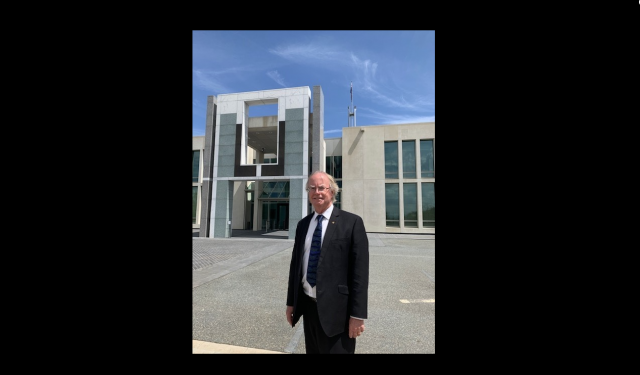The Real Republic Australia said supporters of an Australian republic should focus on informing more important issues than rather than launch personal attacks on the royal family and the coronation of King Charles III.
Real Republic Australia chair, David Muir, said the Real Republic Australia had taken the opportunity in its latest quarterly newsletter Constitutional Conversation not to criticise the event or King Charles, but to canvass issues and ideas that were far more relevant to the republic cause.
“We feel that is a far better use of our time and efforts than making shallow personal attacks or poking fun at the ancient rituals involved in the coronation,” he said in the days before the coronation.
“The fact is the coronation will come and go. But under our Australian Constitution, King Charles III will still be our Head of State the day after his coronation.
“He’ll remain our Head of State until we change our Constitution. That is the focus of the Real Republic Australia which never indulges in personal attacks or ridicule of members of the royal family.”
Mr Muir said King Charles and other senior royals were born into their roles and while some may choose to walk away from royal responsibilities, most had no choice but to serve in the manner demanded of them.
“The Real Republic Australia has never believed that unbridled criticism or ridicule of the royal family is justified. For us it has never been ‘the main game’,” he said.
“We and other Australians who support a republic must build a case and convince our fellow Australians to support changes to our Constitution.
“Specifically, we must encourage people to support a genuine directly elected Head of State which is the model we feel is best placed to pass at a future referendum.
“We must, through publications such as our newsletter and other forums, continue to inform and educate others and help gain their support.
“In doing so we must use and respect the constitutional and democratic processes available to us that will help deliver the changes we want.
“We won’t win people over with cheap insults and empty abuse of the royal family or the ceremonies, events, and duties that they must undertake,” he said.
Mr Muir said the Real Republic Australia did not support parliamentary appointment of a Head of State in a republic and did not support the idea of more than 800 federal and state politicians handing down to voters a shortlist of candidates.
“That is not direct election and echoes the ‘politicians’ republic’ model that failed at the 1999 referendum because voters did not want politicians picking their Head of State for them,” he said.
Mr Muir said in addition to its quarterly newsletters and other activities, the Real Republic Australia had released a comprehensive discussion paper – available at realrepublic.au – seeking feedback on its model for a republic with a genuine directly elected Head of State.
“Our Head of State should not be chosen for us by a hereditary system and should not be picked for us by politicians. We should choose who is our Head of State through a genuine direct-election model,” he said.
“The discussion paper outlines our ideas but we want to hear the views of others and we especially don’t want regional voices to be drowned out by those in Sydney or Canberra.
“Our discussion paper puts forward ideas for eligibility criteria, how to limit campaigns and campaign spending, but most importantly it outlines the sort of powers we want to see codified in law or in the Constitution to ensure an elected Head of State is never a rival to the PM.
“The Republic of Ireland shows how a directly elected Head of State can work comfortably within a Westminster-style parliamentary system and never be a rival to a prime minister leading a cabinet government,” he said.
Mr Muir said the Real Republic Australia also advocated other constitutional reforms including:
* Eliminating costly by-elections with a referendum question creating a Senate-style casual vacancy system for the House of Representatives.
* Four-year, fixed, and synchronised terms for both houses of Federal Parliament to stop prime ministers gaming the system by picking election dates, cutting the number of elections now costing close to $400 million, and ensuring government mandates were not hostage to Senators elected years earlier.
* Breaking the constitutional nexus that demanded the lower house was twice the size of the Senate – a reform that if not taken would one day see a lower house of 300 MPs and around 150 Senators.
* Cutting the number of Senators for each state while retaining two apiece for the NT and ACT; and
* Constitutional recognition of local government.








